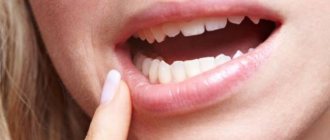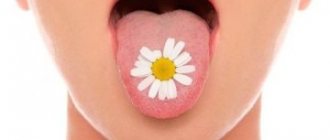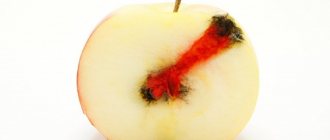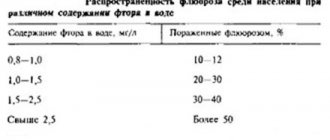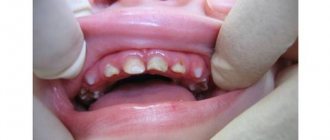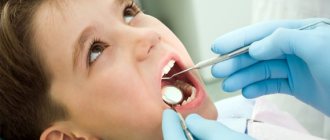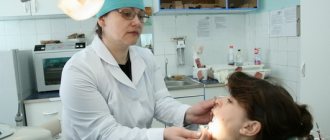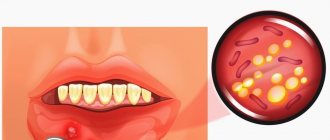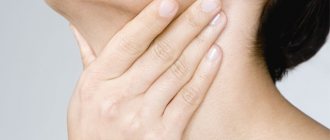Causes
The mucous membrane of the mouth is a fairly resistant surface to various influences. But when it is injured, or an imbalance occurs in the body due to diseases, an inflammatory process can occur, which leads to the formation of a bubble under the tongue. Other problems can also be the main causes of pathology.
If the ball under the tongue is small in size with transparent contents, this is a slight blockage of the salivary gland duct.
You can pierce it yourself with a needle treated with an antiseptic or heated over a flame. A small wound will remain in place of the ball, which heals on its own in 1-2 days.
Dentist
Novikova Olga Alexandrovna
8 years of experience
Injury
Mechanical disruption of the salivary duct of the gland leads to the thickening of the connective tissue and this causes the appearance of a ball under the tongue. A toothbrush with rough bristles, fish bones, a chipped tooth, a toothpick, breaking the cover, activates inflammation.
Antihygiene
In this case, a blister under the tongue appears due to failure to observe basic oral hygiene. This could be someone else's toothbrush, spoons, forks, or rare care.
Syphilis
This disease tends to negatively affect the condition of the mucous membranes, causing tumors.
Complications after illness
The bubble occurs after suffering from mumps, sore throat, or influenza. The salivary gland swells, and against the background of this, stagnation of secretion occurs.
Infection
Microtraumas that occur on the mucous membrane can be infected with bacteria and microbes, fungus, which leads to the formation of an inflamed blister.
Oncology
The disease provokes the formation of a tumor that puts pressure on the area under the tongue. In the early stages, the disease goes unnoticed, but over time, saliva production decreases and a transparent cyst appears, which eventually grows to 3 centimeters.
Food and medicine
A blood ball under the tongue appears for the following reasons:
- Injury that occurs from biting the mucous membrane while eating.
- Chemical burn.
- Hot food or drink.
- Medicines.
- Spicy and salty foods.
- Blocking the duct with a stone.
Ranula
A ball under the tongue can cause ranula. It appears against the background of an inflammatory process in the sublingual area or when the normal functioning of the salivary gland is disrupted. Initially, the disease manifests itself as a bluish discoloration in the oral cavity. After which a bubble appears, which after some time bursts and is observed again in the same place.
The formation of a ball under the tongue is promoted by injury, infection, syphilis, cancer, aphthous stomatitis, medications and food.
The pathology is asymptomatic. Sometimes bloody spots appear in the bladder.
An external examination, medical history, blood and saliva tests, puncture, and dental consultation can help identify the root cause.
For treatment, antiseptic and anti-inflammatory drugs, vitamins are prescribed, and the diet is changed. Surgical intervention is indicated for cysts and neoplasms.
Experts still cannot establish the causes of this disease. Some believe that the pathology arose against the background of an inflammatory process, while others suggest that these are epithelial inclusions of germinal origin. That is, the tumor is a cystic epithelial neoplasm.
The pathology develops against the background of blockage of the salivary gland duct and does not allow saliva to be released into the oral area. This leads to the fact that it accumulates in the gland, which increases to 5 cm in diameter. After which the formation is ruptured on its own or opened by a surgeon using a scalpel.
Why can our articles be trusted?
We make health information clear, accessible and relevant.
- All articles are checked by practicing doctors.
- We take scientific literature and the latest research as a basis.
- We publish detailed articles that answer all questions.
The ranula looks like a bubble with a clear liquid, which does not cause pain, but brings discomfort to the patient in the oral mucosa.
Aphthous stomatitis
Aphthous stomatitis is also one of the causes of a bubble under the tongue. This is an inflammatory process that occurs in the area of the oral mucosa, which is manifested by the appearance of aphthae. Aphthous stomatitis is a common disease and can be treated by a dentist.
The main factors in the occurrence of pathology are:
- disruptions in the functioning of the immune system;
- viruses;
- hormonal fluctuations;
- heredity;
- allergic reactions;
- diseases of the digestive tract;
- diseases of the gums and teeth;
- injuries;
- lack of nutrition;
- hypovitaminosis;
- stress, depression, nervous tension;
- accompanying illnesses;
- violation of personal hygiene rules.
Aphthous stomatitis is very common in young children, especially during teething. At this point, you should definitely consult a doctor.
The mechanism of formation of a blood bubble on the oral mucosa
Bloody blisters in the mouth in most cases are not life-threatening. They are formed as a result of mechanical damage to the mucous membrane. When microtrauma occurs, harmful microorganisms attack the damaged area.
After this, a number of responses are activated in the human body:
- The immune system is activated. Monocytes and leukocytes, as well as macrophages, instantly arrive at the damaged area, attacking the harmful pathogen and quickly destroying it.
- Immune cells die. This is a signal for other cells and substances are released in the affected area that are mediators of inflammation of the mucous membrane - serotonin, histamine and bradykinin.
- These substances cause a strong spasm of the circulatory system and the outflow of blood is hampered. After the spasm is relieved, all accumulated blood immediately flows to the site of inflammation. It moves at high speed and under pressure. A detachment of the mucous membrane occurs in the mouth, and a bloody blister appears.
Symptoms
Symptoms of the pathology depend on the reason for which it arose.
With injuries in the tongue area, blisters may appear not only under the tongue, but also on the side. It is mainly pink in color or engorged with blood, which is visible to the naked eye.
If any blood manifestations are absent, then this indicates the superficial nature of the pathology; most often, such a bubble goes away on its own and does not cause noticeable harm to health. When a blood clot appears, the hematoma is very deep and can become a breeding ground for pathogenic bacteria, most often this leads to an inflammatory process.
A small bubble that has popped up may be the cause of vitamin deficiency. In this case, the patient feels almost no discomfort. Such manifestations disappear within a few days. To prevent the bubble from appearing again, you need to reconsider your diet and enrich your diet with vegetables, fruits, meat and dairy products. It is also recommended to undergo a course of treatment with vitamins.
If bloody inclusions are noticed in the bubble, then this is most likely a rune, which can only be removed through surgery.
Diagnostics
If a bubble appears in the sublingual area, you should definitely consult a doctor, as this may signal disturbances in the functioning of the body and dangerous diseases. The specialist is obliged to carry out diagnostic measures that will help find the causes of the pathology:
- Study of all symptoms and complaints.
- Determining the presence of chronic diseases and injuries in the oral cavity.
- External examination of the tongue.
- Laboratory tests of blood and saliva.
- Puncture of the contents of the bladder under the tongue.
- Examination by a dentist.
The specialist analyzes the results and prescribes the correct treatment, in some cases surgery.
What is
To understand the consequences of inflammation under the tongue, it is necessary to consider the structure of this zone. The floor of the oral cavity has:
- large salivary gland;
- muscles;
- nerve endings;
- connective tissue represented by the frenulum;
- hyoid bone.
Each of the listed anatomical structures plays an important function and is irreplaceable. Thanks to them, normal digestion of food and the functioning of the tongue occur. Problems with the salivary glands, muscles or ducts result in pain in the mouth.
Drug treatment
Therapy for a bubble under the tongue is prescribed depending on the causes of its occurrence:
Self-medication is dangerous with complications!
Attention
Despite the fact that our articles are based on trusted sources and have been tested by practicing doctors, the same symptoms can be signs of different diseases, and the disease may not proceed according to the textbook.
Pros of seeing a doctor:
- Only a specialist will prescribe suitable medications.
- Recovery will be easier and faster.
- The doctor will monitor the course of the disease and help avoid complications.
find a doctor
Do not try to treat yourself - consult a specialist.
- For aphthous stomatitis, a number of antiseptic drugs are used; physiotherapy and mouth rinsing using decoctions of medicinal herbs such as calendula and chamomile are also recommended. The affected area is periodically treated with sea buckthorn oil.
- In infectious diseases, the cause of the disease is initially eliminated.
- In case of vitamin deficiency , the diet changes and a number of vitamin complexes are prescribed.
- For endocrine diseases and disorders, hormones are prescribed, after special tests have been carried out.
- Neoplasms and cysts are removed surgically. After removing the blisters, a course of treatment with antibacterial and anti-inflammatory medications is carried out.
It is recommended to carry out therapy in a comprehensive manner. Under no circumstances should you pierce the bubbles, touch them with dirty hands or act on them mechanically, for example, with a toothbrush.
If there is insufficient saliva production, experts recommend taking 6 drops of pilocarpine saline solution or a tablespoon of 2 percent potassium iodide 3 times a day.
Treatment of blisters under the tongue
Therapy has several directions and depends on the cause of the development of education, it includes:
- Taking antibacterial drugs, in particular antibiotics, is prescribed for inflammatory and infectious processes, when the mucous membrane is affected by pathogens.
- Conducting antiseptic rinses that will help destroy pathogenic agents, antiseptics are often prescribed in the form of solutions.
- Treatment may include cleaning the cavity, removing the formation, and installing drainage. Often the edges of the bladder are cleaned and stitched, which helps prevent relapse.
In general, therapy directly depends on the cause of the development of the pathological process; it is prescribed by a doctor, he selects medications and monitors the dynamics.
Special Recommendations
When treating a bubble under the tongue, all rules of oral hygiene are strictly observed. For this we recommend:
- brush your teeth after every meal;
- rinse your mouth with special solutions or boiled water, to which you can add soda or a decoction of chamomile and calendula;
- purchase a special antibacterial toothpaste that relieves pain and blocks the spread of infection.
During the period of illness, it is worth completely reconsidering your diet, excluding from the daily diet:
- any alcoholic drinks;
- spicy;
- smoked;
- sour;
- salty;
- canned.
It is recommended to periodically change your toothbrush and allocate personal utensils for eating. Smoking negatively affects the treatment process, so it is best to get rid of this bad habit.
Rinse
To carry out such procedures, dentists prescribe antiseptic and anti-inflammatory solutions.
Table 3. Names and specifics of medications:
| Chlorhexidine: | It is considered a good antiseptic, which is often used in dentistry as part of sanitation. A clear solution with a bitter taste will not harm the mucous membrane. |
| Stomatophyte: | A herbal drug, alcohol-based, which is prescribed to patients who have undergone surgery. Effective for inflammatory and infectious diseases. |
| Furacilin in solution: | The yellow liquid, which is used for rinsing, has a pronounced antiseptic effect. |
The doctor may prescribe Miramistin or any other antiseptic; aggressive solutions such as hydrogen peroxide are less commonly used, since they can cause damage to the mucous membranes.
Rinsing with herbal solutions has good results, using:
- Chamomile decoction is a natural antiseptic that promotes the death of pathogenic flora.
- Calendula infusion accelerates regeneration processes, promotes healing and restoration of the membranes of the oral mucosa.
- A decoction of oak bark has an excellent astringent effect and promotes the rapid healing of wounds and injuries.
You can also rinse your mouth with propolis tincture; it speeds up recovery and is considered a natural antiseptic. This means it prevents the proliferation of pathogenic microorganisms.
Possible consequences
Since the bladder negatively affects the functioning of the salivary glands, digestion may be primarily affected. Food without a normal amount of saliva is poorly digested, and the body ceases to receive sufficient amounts of vitamins and minerals. All this negatively affects the immune system, which leads to a number of diseases.
A scar may also form, which will interfere with the normal functioning of the salivary glands. As a complication, a purulent, inflammatory process called sialadenitis can occur.
Prevention and prognosis
The main methods of preventing a bubble under the tongue include the following:
- compliance with personal hygiene rules;
- proper nutrition with a diet enriched with vitamins and minerals necessary for the body;
- fight against bad habits;
- prevention of chronic diseases;
- control of the volume of saliva secretion;
- increasing protective functions through hardening, walking and sports;
- removal of ranula and prevention of its enlargement and proliferation;
- periodic visits to a general practitioner and dentist;
- using decoctions or special solutions every day during the day to rinse the mouth.
With proper and timely treatment of the pathology, the prognosis is as positive as possible.
